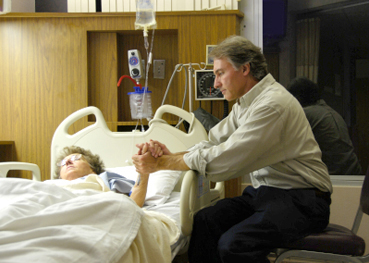
By following practices that are common in home-based hospice care, nursing homes can improve the comfort and dignity of residents who are dying, according to new study results.
More than 1,600 staff members at Veterans Affairs Medical Centers participated in the trial, during which they received training in palliative care. Known as the Best Practices for End-of-Life Care for Our Nation’s Veterans (BEACON) trial, the findings have implications for nursing homes and hospitals outside the VA system, according to the team that led the research.
BEACON gave caregivers education and tools to identify dying individuals, communicate with them and their loved ones, and implement care processes traditionally followed in home-based hospice care. The caregivers utilized an electronic order set devised to support the program.
The BEACON program led to “statistically significant” improvements, researchers said. Dying patients were more likely to receive opioid medications to ease pain and shortness of breath, and antipsychotic medication to help alleviate delirium, agitation and anxiety, the investigators found. The BEACON interventions also decreased the use of nasogastric tubes and increased the likelihood of an advance directive being in place.
The team was led by F. Amos Bailey, M.D., of the Birmingham Veterans Affairs Medical Center and the University of Alabama at Birmingham. Results appear in the current issue of the Journal of General Internal Medicine.




